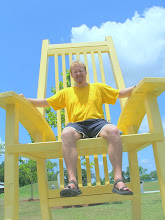Thinking literally
The surprising ways that metaphors shape your world
By Drake Bennett, Globe Staff | September 27, 2009
WHEN WE SAY someone is a warm person, we do not mean that they are running a fever. When we describe an issue as weighty, we have not actually used a scale to determine this. And when we say a piece of news is hard to swallow, no one assumes we have tried unsuccessfully to eat it.
These phrases are metaphorical--they use concrete objects and qualities to describe abstractions like kindness or importance or difficulty--and we use them and their like so often that we hardly notice them. For most people, metaphor, like simile or synecdoche, is a term inflicted upon them in high school English class: “all the world’s a stage,” “a house divided against itself cannot stand,” Gatsby’s fellow dreamers are “boats against the current, borne back ceaselessly into the past.” Metaphors are literary creations--good ones help us see the world anew, in fresh and interesting ways, the rest are simply cliches: a test is a piece of cake, a completed task is a load off one’s back, a momentary difficulty is a speed bump.
But whether they’re being deployed by poets, politicians, football coaches, or realtors, metaphors are primarily thought of as tools for talking and writing--out of inspiration or out of laziness, we distill emotions and thoughts into the language of the tangible world. We use metaphors to make sense to one another.
Now, however, a new group of people has started to take an intense interest in metaphors: psychologists. Drawing on philosophy and linguistics, cognitive scientists have begun to see the basic metaphors that we use all the time not just as turns of phrase, but as keys to the structure of thought. By taking these everyday metaphors as literally as possible, psychologists are upending traditional ideas of how we learn, reason, and make sense of the world around us. The result has been a torrent of research testing the links between metaphors and their physical roots, with many of the papers reading as if they were commissioned by Amelia Bedelia, the implacably literal-minded children’s book hero. Researchers have sought to determine whether the temperature of an object in someone’s hands determines how “warm” or “cold” he considers a person he meets, whether the heft of a held object affects how “weighty” people consider topics they are presented with, or whether people think of the powerful as physically more elevated than the less powerful.
Monday, October 19, 2009
Subscribe to:
Post Comments (Atom)


No comments:
Post a Comment